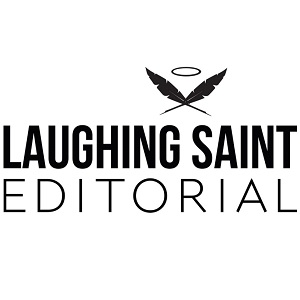I never have enough to do [pause for roaring laughter], so in addition to being a freelance copyeditor and writing teacher, I'm also a Masters of Divinity student at an internationally known seminary that I see no point in naming here [ahem]...
I was sitting in class not long ago, enjoying a lecture by a writer/editor who seems to be quite successful (I think we heard that she'd gotten "a piece placed in the New York Times" five or so times; I stopped counting after she breached her contract [I'm assuming] by name-dropping the person for whom she'd ghostwritten the NYT piece) and in general had useful advice, much of which was taught to me as a graduate student and much of which I've taught my first-year university students for a decade. Classic genre-analysis strategies. All quite useful.
The writer/editor "critiqued" three of my classmates' papers as well as two of my professors'. This wasn't so much a workshop as an editorial postmortem: she asked the writers to read their unedited texts aloud, and then she showed everyone in the class the edited version of the texts, each bleeding-red with Track Changes revisions and such.
My colleagues weathered this with the kind of humbleness and gratitude one should expect from seminarians. But I would never have subjected my students to the potential humiliation of being asked to read aloud something they've worked hard on only to see it changed beyond their desire or control by someone whom they think clearly "knows more" and is going to "fix" all the "problems" in their texts. And then to subject my students to a public inquisition before their classmates (Student respondent: "I really liked what you did in the introduction." Student writer: "Thanks!" Writer/editor: "I really wasn't sure of what you were trying to say in the introduction, so as you can see in the revised version, I changed it substantially.")? Never.
I experience this situation all the time, though. I'm sure that chiropractors often think, "If only that person with horrible posture would just come into my office, I could help so much!" I often see people helping other people with writing in ways that are discouraging or that perpetuate myths about writing or that aren't collaborative or rhetorically sensitive. But I can't fix everyone's posture, so I just go about my business.
There is one "correction" that the writer/editor made a point of saying before critiquing the students' drafts about which I can make a quick public service announcement. Her claim was that due to is replacing because of, and anytime a writer uses because of, she should replace it with due to.
I don't know which editor she heard this from, but she either misunderstood or got bad advice. Her assertion is factually wrong and pragmatically unhelpful.
It's easy to find official examples of important editorial styles that not only allow for but sanction because of in pertinent circumstances. Here are the facts from the Chicago Manual of Style's website. Here are the pragmatics about the Associated Press style guide's lack of proscription against the use of because of from the legendary copyeditor of The Baltimore Sun. Here is some additional discussion from well-respected linguistics blog Language Log about the history of due to and about the ways in which the phrase's usage is changing.
The short version of why her proscription was false is this: due to should be used as an adjective (description) phrase. Example: The rise in profits was due to the increase in revenues. Notice how that sentence is structured very much like another one: The rise in profits was big. Big is an adjective, and due to functions in the same way, grammatically. If you could substitute in the word "related" for "due," then you could test its appropriateness: The rise in profits was related to the increase in revenues.
And because of is a preposition phrase. Example: The profits rose because of a change in policies. Try testing this by substituting in other prepositions: The profits rose around a change in policies. Not the clearest example, but perhaps when I come up with one, I'll use the magic of the internet to make some emendations.
The upshot is this: no matter who you are, how successful you are, or how sure you are, be careful about the proscriptions you announce, especially if you're helping people who are already less-knowledgeable than you. Encourage them to double-check your assumption by looking up the accepted usages in their manual of choice. Never be too quick to say "never," because language and usage change quickly. Depending on how staunch your proscription was, you may be somewhat wrong or very, very wrong sooner than you think!
